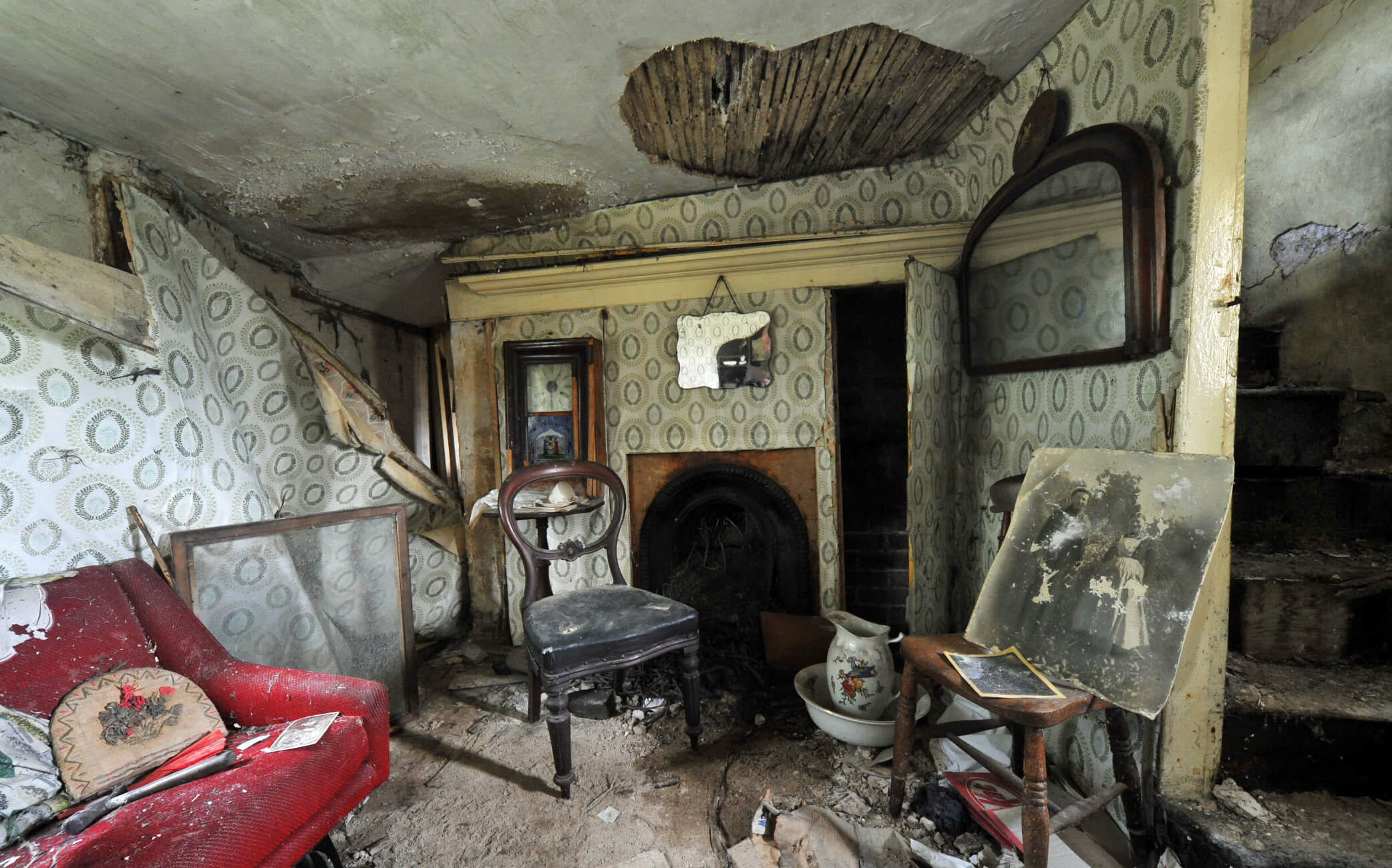
Ramblings
Saunterings
Ramblings: about North-West England
Ramblings is a set of articles about North-West England, of unknown authorship and
indeterminate date, believed to have been written for amusement on rainy days,
which are not unknown in North-West England.
16. The Opening of Low Dudgeon
Details of the new season of cultural events were today
announced by Abigail Sparti, Cumbria’s cultural commissar.
“It is important” she said “to invigorate the mind, as well as the
body, of our visitors, and also to give them something to do if it
rains, as it does from time to time”.
The highlight of the new programme is undoubtedly the long-awaited opening to the public of Low Dudgeon, which was once the
home of Willie Black, the ‘Bard of Bowness’.
Ms Sparti said “We are all excited by this addition to Cumbria’s
cultural scene. I have yet to visit the Willie Black exhibition myself
but I am sure that it will provide a valuable insight into the life and
work of one of Cumbria’s greatest men of literature”.

The National Truss, supporter of all that is great in Great
Britain, has carefully restored the property to the exact condition
it was in when Willie died in 1965. Low Dudgeon is therefore a time
capsule of an amazing life.
Packed full of the bric-a-brac and debris of a shambolic
existence, the cottage appears as if Willie had just wandered out for
a smoke. Every room contains subtle references to images in the
poems, as only those familiar with them will recognise. The cottage
garden is an overgrown, haphazard jungle of brambles, weeds and
shrubs, just as Willie always ignored it.
Wilhelmina Black was born in 1924 in Bootle to working-class
parents who cleaned and walked the streets of Liverpool. Her
childhood took her through the Great Depression, but she was
depressed ever after, as reflected in her poetry.
She remained true to her roots when in 1946 she moved to the
ramshackle cottage of Low Dudgeon, near Bowness, where she wrote
gritty poems about the workers of Cumbria, the sheep farmers,
the foresters, the bobbin makers, the slate quarriers, the miners of
Workington, and the shipbuilders of Barrow, with all of whom she
felt much kinship.
Willie was patronised by the upper classes of Cumbria but she
didn’t mind as long as they bought her poems. It was they who
dubbed her the ‘Bard of Bowness’. “Pretentious prats” said Willie.
“You’d think I sold ice-creams rather than poems the way they
come knocking on my door asking for one”.
Visitors to Low Dudgeon will see the workshop where all her
poems were hammered out. Beside the battered typewriter lie
half a decade of the Daily Worker, half-smoked Woodbines, half-drunk bottles of Guinness, half-eaten potted meat sandwiches, and
half-completed poems, indicating the suddenness of her demise, or
her slovenliness.
Her bedroom is as it was, with no roof. Willie liked to lie gazing
at the moon and stars, seeking inspiration. She rarely received it.
Saturation, yes, but inspiration, no.
The National Truss has re-installed Reggie, Willie’s long-term
partner, who devoted his life to supporting her genius. Now 88, he
goes slowly through his old routines in the kitchen, which include
preparing tripe sandwiches that gourmands may sample in the
generously-provisioned bistro tucked away in the nearby copse.
The main, but still tiny, room of the cottage has the same
chandeliers, looking absurdly out of place amongst the dereliction,
that were installed by grateful electricians so memorably eulogised
in her Elegiac Stanzas to Electricity and Those Who Bring It To Us. In
this room, Willie gave readings to adoring visitors, especially to
workers from the Ruhr valley, where she was a cult figure.
The outside toilet is - well, let’s not go there.
Visitors should note that there is limited free parking. In fact, there
is none at all. Willie Black did not want a road to Low Dudgeon and
the National Truss wants Low Dudgeon to remain as it was, preserved
for everyone, for ever. Coach parties must ring up in advance to be
told that they cannot come. All visitors must walk along the clearly
signposted five-mile track from Windermere railway station. The
track is narrow and can be very busy, so visitors are advised to
allow extra time during peak periods such as summer holidays and
Willie Black’s birthday (October 5th) and deathday (April 28th).
Photo:
The Low Dudgeon parlour.
Comments:
• Low Dudgeon was closed shortly after it opened. A wall fell on four
visitors. They survived. The wall didn't. The National Truss wanted to restore the building to its
previous unstable state but planning permission was refused.
Ramblings
Saunterings
© John Self, Drakkar Press, 2024-

Top photo: Rainbow over Kisdon in Swaledale;
Bottom photo: Ullswater



